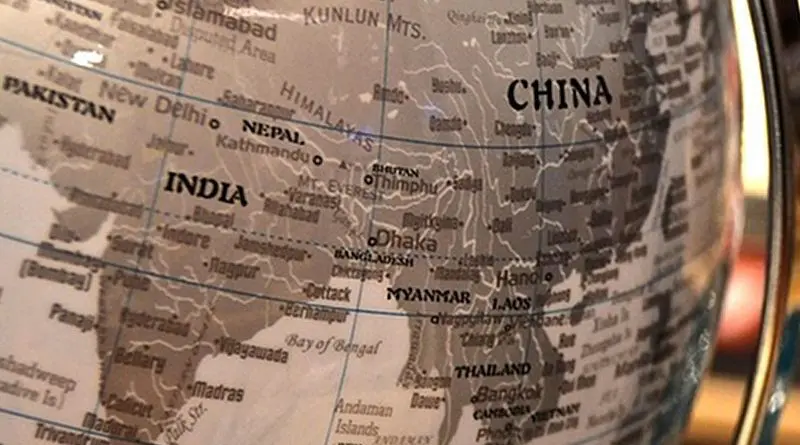Challenges And Prospects For Peace In Southeast And East Asia Is Acknowledged As ‘Navigating Complexities’ – OpEd
The mounting challenges of keeping peace and balance in Southeast and East Asia was mentioned at size for the duration of the ASEAN Ministerial Defense Conference in November 2023, Jakarta, Indonesia. Fundamental troubles like the island disputes between Japan and Russia and China and Japan, the South China Sea, the Code of Conduct, the catastrophe in Myanmar and the Five Point Consensus, the complexities on the Korean Peninsula, the Taiwan Strait, and the evolving ties between North Korea and Russia all contribute to the severity of these challenges. This article delves deeper into the nuances of these troubles and emphasizes the integral significance of an in-depth investigation and concerted efforts to assurance the region’s stability.
The involvement of several states in territorial disputes in the South China Sea is a considerable aspect contributing to heightened global tensions. The meant Code of Conduct will serve as a framework for collaborative choice-making and warfare resolution. However, the success of the surprising warfare is contingent on the choice of methods hooked up through the stunning battle and the willpower of concerned international locations to adhere to the desires of the high-quality war.
The political local weather in Myanmar, and greater particularly the launch of the ASEAN-approved Five Point Consensus, has garnered global attention. The contract specifies the applicable procedures, such as changing the ambassador and coordinating the distribution of property to the victims. The association can solely be carried out with the full dedication of the Myanmar army authorities and the cooperation of the global community.
North Korea’s current launch of a so-called “spy satellite” has similarly escalated tensions on the Korean Peninsula. The workable for militarization and its practicable outcomes on neighboring areas have been noted as reasons for concern. The strengthening of North Korea and Russia’s collaboration provides a layer of complexity to the issue, making it crucial for involved states to take a nuanced and coordinated response.
The instability of the Southeast Asian vicinity and the semiconductor enterprise are each threatened by China’s deployment of troops to Taiwan. Because of the region’s dependency on Taiwan’s semiconductor industry, extra supervision on the global stage is required. The Taiwan Strait should be monitored intently to stop in addition escalation and keep away from bad financial impacts.
The scenario is made greater difficult using the ongoing territorial disputes between China and Japan, as well as the clashes between Japan and Russia over the Kuril Islands. When it comes to heading off manageable naval confrontations and destabilization in the region, diplomatic efforts are extraordinarily required.
To clear up these problematic issues, a complete and coordinated format is essential. Because of the world nature of these problems, worldwide cooperation is essential. Success in this effort requires candid discussion, the adoption of global agreements, and the prioritization of diplomatic solutions. The global neighborhood has the clout to make strides in mitigating these issues’ detrimental results and setting up sustainable peace and security.
To attain these goals, worldwide structures need to amplify their emphasis on dialogue, foster deeper world connections, and motivate a cooperative way of existence if they are to contribute to a future that is greater robust. If the global neighborhood can research its previous successes in working together, it would possibly play a sizable function in preserving the advertising scales balanced. Proactive measures, such as sustained diplomatic engagement and venues for non-stop communication, are vital to pave the way for long-term, sustainable solutions.
The scenario calls for immediate interest and pressing action. Now, international locations should do more than react to emergencies; they should additionally work proactively to prevent the escalation of hostilities. Before this, their sole job used to be to react to emergencies as they arose. Investment in combat prevention methods, merchandising coaching on regional concerns, and encouraging peace initiatives at the grassroots stage can all contribute to a greater secure Southeast and East Asia.
Looking Ahead the Global Neighborhood should hold its vigilance and adaptability as the location works its way through these difficulties. It is integral to behavior steady assessments of the decision-making buildings governing geopolitical dynamics, diplomatic strategies, and armed conflicts. The international locations of Southeast and East Asia may additionally lay the groundwork for everlasting peace through working together, furnished they can foster a spirit of collaboration and mutual understanding.
In short, one wishes for a complete and potential format to deal with the challenges of Southeast and East Asia. Everyone must work collectively closer to a peaceable and affluent future for the area, and doing so will take teamwork, creativity, and foresight. The worldwide neighborhood can feature as a catalyst for profound change, and it is incumbent upon states around the world to take this danger for the larger good.
References:
- Fravel, M. Taylor. “Why China Wants to Control the South China Sea.” International Security, vol. 43, no. 3, 2018, pp. 41-76.
- Thant Myint-U. The Hidden History of Burma: Race, Capitalism, and the Crisis of Democracy in the 21st Century. W. W. Norton & Company, 2021.
- DePetris, Daniel R. “North Korea and Russia: An Evolving Security Partnership.” Center for the National Interest, 2021.
- Rigger, Shelley. Why Taiwan Matters: Small Island, Global Powerhouse. Rowman & Littlefield Publishers, 2011.
- Brown, James D. J. Japan, Russia, and their Territorial Dispute: The Northern Delusion. Routledge, 2016.

